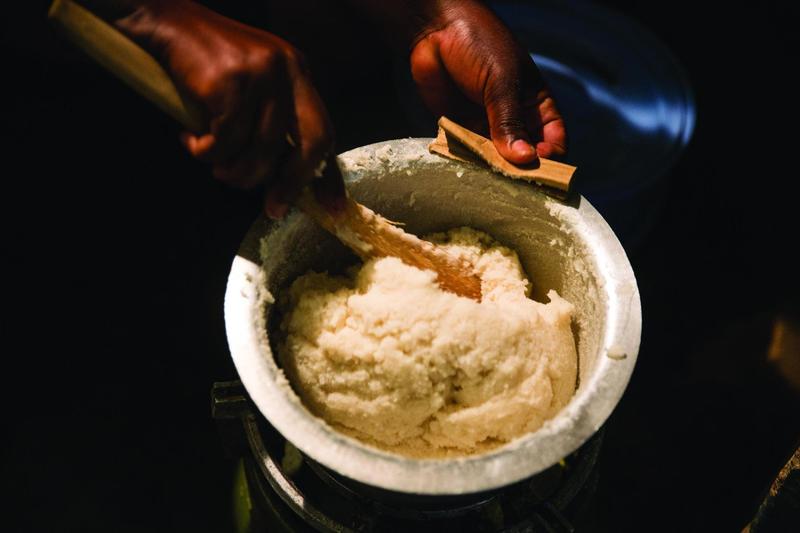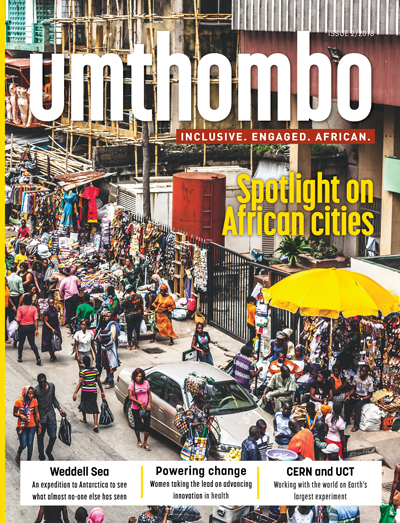Diet and disease in African cities
21 November 2018 | Story Ambre Nicolson. Photo Sam Reinders. Read time 4 min.
Dr Jane Battersby is a social and cultural geographer who has been researching urban food systems for the past decade. As Battersby explains it, an urban food system is the story of how a city’s inhabitants feed themselves, from growing food to harvesting, processing, selling and eating it.
In 2017, Battersby and fellow African Centre for Cities (ACC) researcher, Gareth Haysom, together with an interdisciplinary team of African researchers, launched a new multi-year project called Nourishing Spaces. It investigates the role of urban food systems in preventing non-communicable diseases such as obesity and diabetes.
The project is being conducted in a mix of six large- and medium-sized cities in South Africa, Namibia and Kenya.
"Food security has often been thought of only in terms of production and scarcity, but research shows that diseases like diabetes and obesity are manifestations of food insecurity."
Food security and urban food systems is one of the ACC's core areas of work. Current projects also working on the food theme are the Consuming Urban Poverty project and the Hungry Cities Partnership.
“Food security has often been thought of only in terms of production and scarcity, but research shows that diseases like diabetes and obesity are manifestations of food insecurity,” says Battersby.
The project relies on in-depth qualitative interviews with two groups: inhabitants and food retailers who operate in the same areas. “In each area we are trying to understand what people are consuming, where they are getting it from and why they are consuming it.
“Some of the questions we are interested in answering include how people’s choices are informed by a combination of infrastructure, cost and culture,” says Battersby.
The researchers’ aims are two-fold: to suggest possible interventions that go beyond national policy debates and to create food systems committees that advocate on behalf of their communities.
"Some of the questions we are interested in answering include how people’s choices are informed by a combination of infrastructure, cost and culture."
As an example, Battersby explains how a lack of local services can affect health: “What if instead of debating sugar taxes, it’s actually about installing better infrastructure for water standpipes so that people can cook more safely? Or installing better street lighting so that people are not forced to stay indoors after dark?
“What are the intervention points that encourage the integration of healthy food systems into the life of a city?”
 This story was published in the second issue of Umthombo, a magazine featuring research stories from across the University of Cape Town.
This story was published in the second issue of Umthombo, a magazine featuring research stories from across the University of Cape Town. Umthombo is the isiXhosa word for a natural spring of water or fountain. The most notable features of a fountain are its natural occurrence and limitlessness. Umthombo as a name positions the University of Cape Town, and this publication in particular, as a non-depletable well of knowledge.
Read the complete second issue online or subscribe and receive new issues in your inbox every few months.
 This work is licensed under a Creative Commons Attribution-NoDerivatives 4.0 International License.
This work is licensed under a Creative Commons Attribution-NoDerivatives 4.0 International License.
Please view the republishing articles page for more information.










